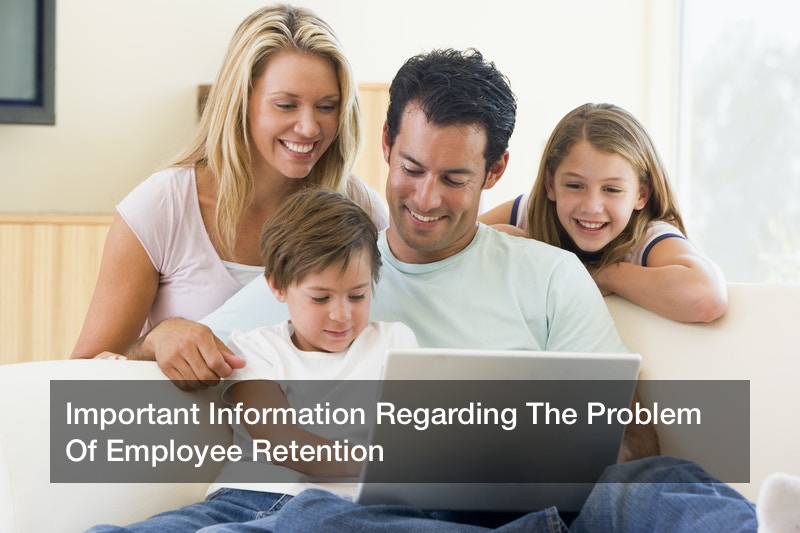Important Information Regarding The Problem Of Employee Retention

Employee retention rates throughout all industries and fields of work have become more problematic than ever before, especially here in the United States. But this problem certainly isn’t a new one. The data that has been gathered on the subject is more than in support of this claim, showing that. Even back in the year of 2015, up to two and a half million employees (more, even) had decided to leave their jobs on a voluntary basis. And this was all by the June of that year alone, marking a nearly one quarter increase in such activity in comparison to just two years prior. Unfortunately, this trend is one that has only continued in the years that have transpired since.
Many people have blamed the Millennial generation, even calling them the “job hopping generation.” To some extent, there is truthfulness to this statement. After all, up to 60% of all Millennial-aged employees have stated that they would be willing to leave their current job if they were lucky enough to be offered a better one. However, this behavior is only a symptom of a much larger problem – it is not the cause of it. There are many issues in our workforce as we know it, and combating these issues and taking them seriously is likely to prove beneficial when it comes to overall employee retention rates as they are seen on a national scale.
For one thing, employing HR strategies for startups can be hugely beneficial. These HR strategies for startups can help a company get off on the right foot, putting a hiring protocol in place and firming up other areas of the company. HR strategies for startups can lead to happy employees who enjoy their work as well as their working environment. Any company just getting off the ground is likely to benefit from these HR strategies for startups. But where can such HR strategies for startups even be obtained?
Fortunately, HR strategies for startups can be easily implemented with the help of HR services for startups, which can provide something like an HR startup checklist. Human resources consulting firms can play a big role in providing these HR strategies for startups, and are becoming more popular than ever all throughout the United States. Fortunately, this means that HR strategies for startups are becoming more widely implemented than ever before as well.
But what about companies that have already been around for quite some time? Fortunately, there are ways in which their employees can benefit from new programs as well. Consider, for instance, the typical employee recognition program. An employee recognition program might not seem to be all that big of a deal, but it can actually have a tremendous impact on overall levels of employee happiness. As a matter of fact, more than 85% (around 86%, to be just a bit more exact) of all companies who have put an employee recognition program into place have found that overall rates of employee happiness grew. And when employee happiness is on the rise, employees are likely to stick around at their jobs at least a little longer. Overall quality of work and levels of productivity will likely see a jump as well, something that certainly should be mentioned when looking at just how beneficial the implementation of an employee recognition program of really any kind can be.
Even just watching the hiring process more carefully and conducting this process with more thought and deliberation can pay off immensely. After all, around 36% of all surveyed top CEOs felt that a poor skills match between the hired candidate and the job in question led to many a failed hire, as too did the poor communication of performance objectives. Simply refining the hiring process to find the right candidate, maybe even through the use of a service provided by an outplacement consulting company, can make a world of difference to the overall rates of employee retention that any given company is able to experience.
All in all, the issue of employee retention is certainly a serious one. Fortunately, there are many ways to rectify or at least help to mitigate this growing issue.
